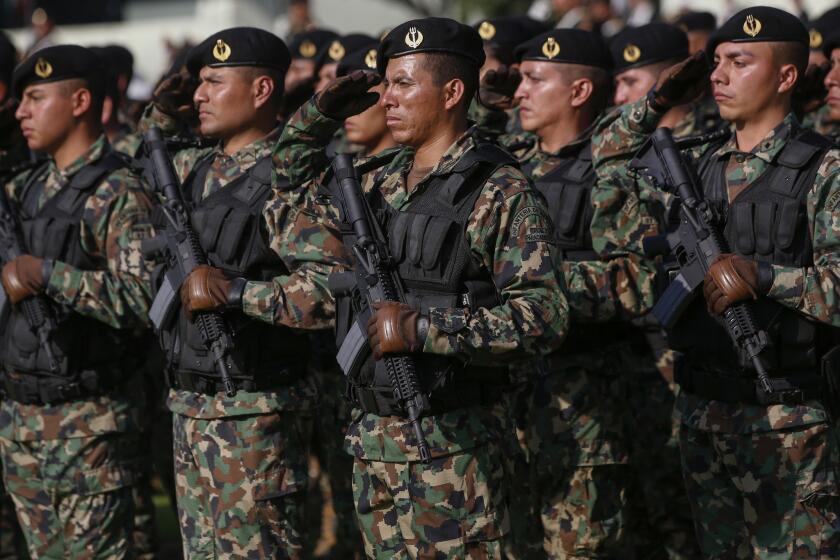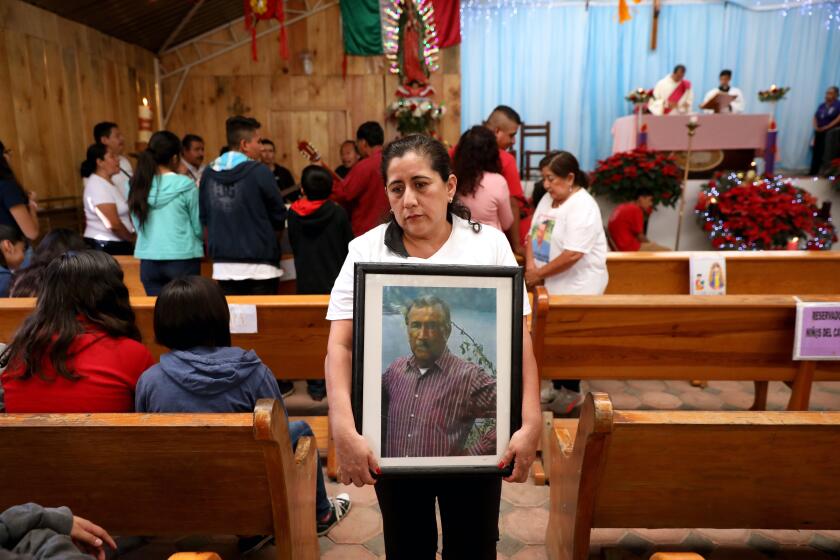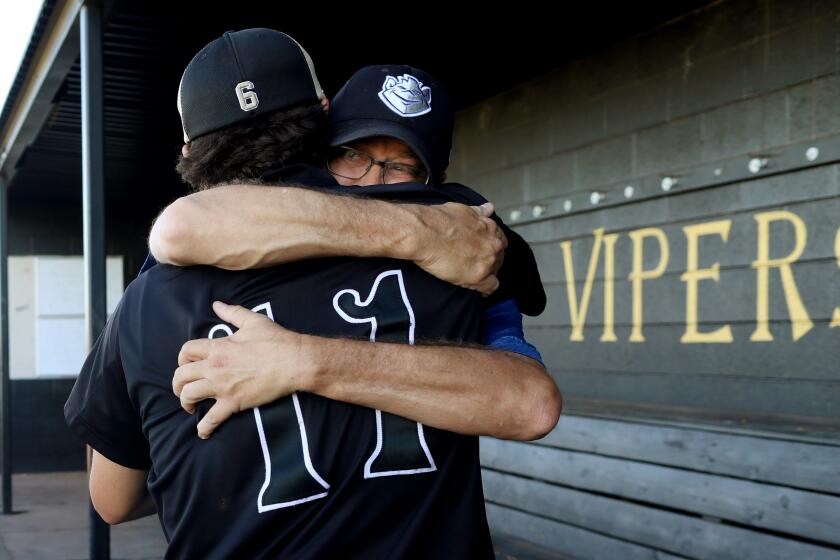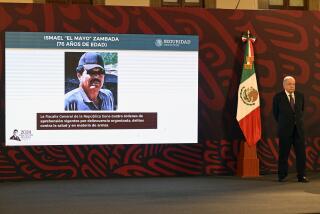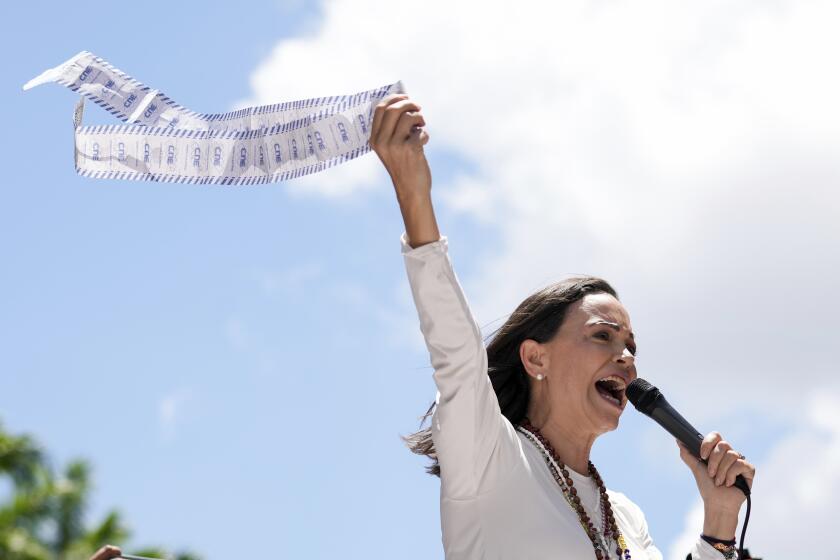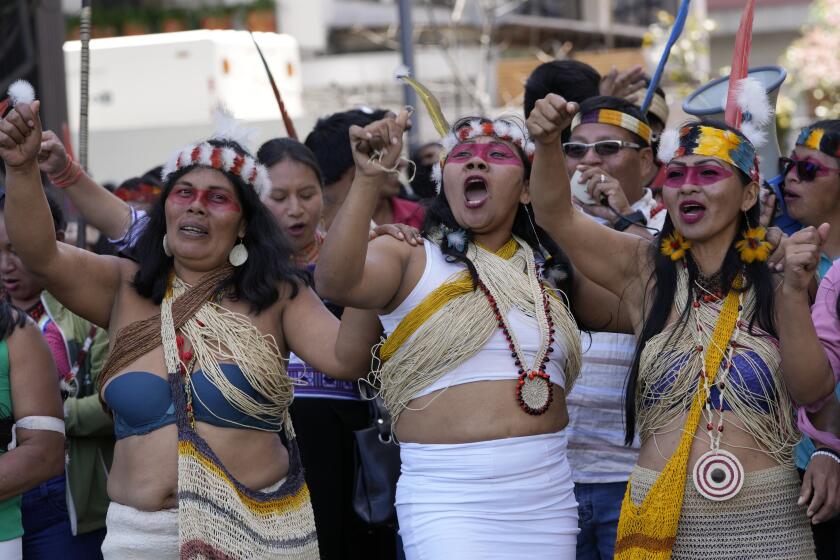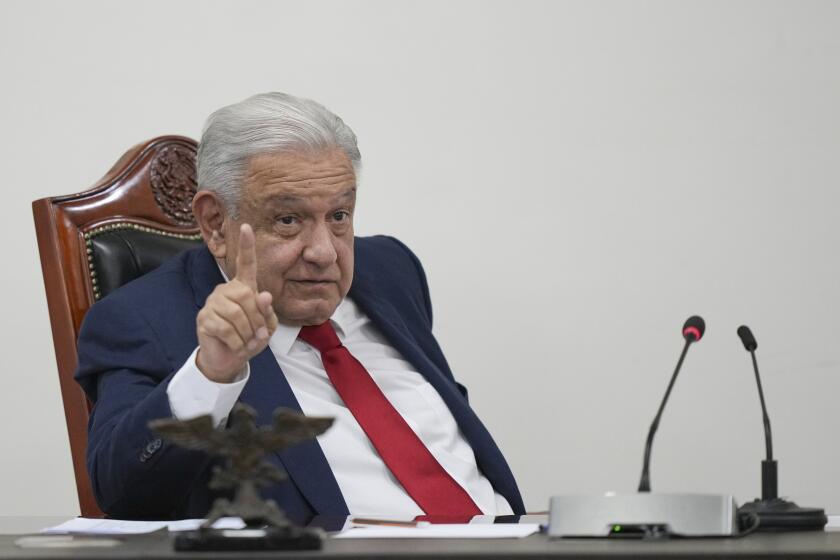
Oswaldo Zavala is a Mexican academic and writer whose provocatively titled 2022 book — “Drug Cartels Do Not Exist: Narcotrafficking in U.S. and Mexican Culture” — argues for a bold reframing of how to think about organized crime in his country. Zavala says that the cartels are not as all-powerful as U.S. and Mexican authorities insist, and that they could not flourish without the support of corrupt public officials.
After the arrest last month of two leaders of the Sinaloa drug trafficking organization, The Times’ Kate Linthicum spoke with Zavala about the the “kingpin strategy,” which targets cartel chiefs, and the ways he says authorities have built up the idea of all-powerful narco “bogeymen” in order to obscure the involvement of government officials in the drug trade and justify militarization.
Their conversation has been edited for clarity.
What did you think when you heard news reports that two high-level Sinaloa cartel members had been arrested outside El Paso?
The first thing that came to my mind was, “Oh, here we go again.” It’s the narco-narrative recycling itself again, just with a shuffling of names.
What is the narco-narrative?
It argues that drug organizations have become very sophisticated and very empowered and have endless resources, and that they can challenge not only authorities in countries such as Colombia or Mexico, for example, but also U.S. intelligence institutions such as the Drug Enforcement Administration and the FBI.
It’s the public justification of a militarized policy that has been pushed into Latin America from the Global North, and it has resulted in bloodshed affecting the most impoverished and disenfranchised and vulnerable sectors.
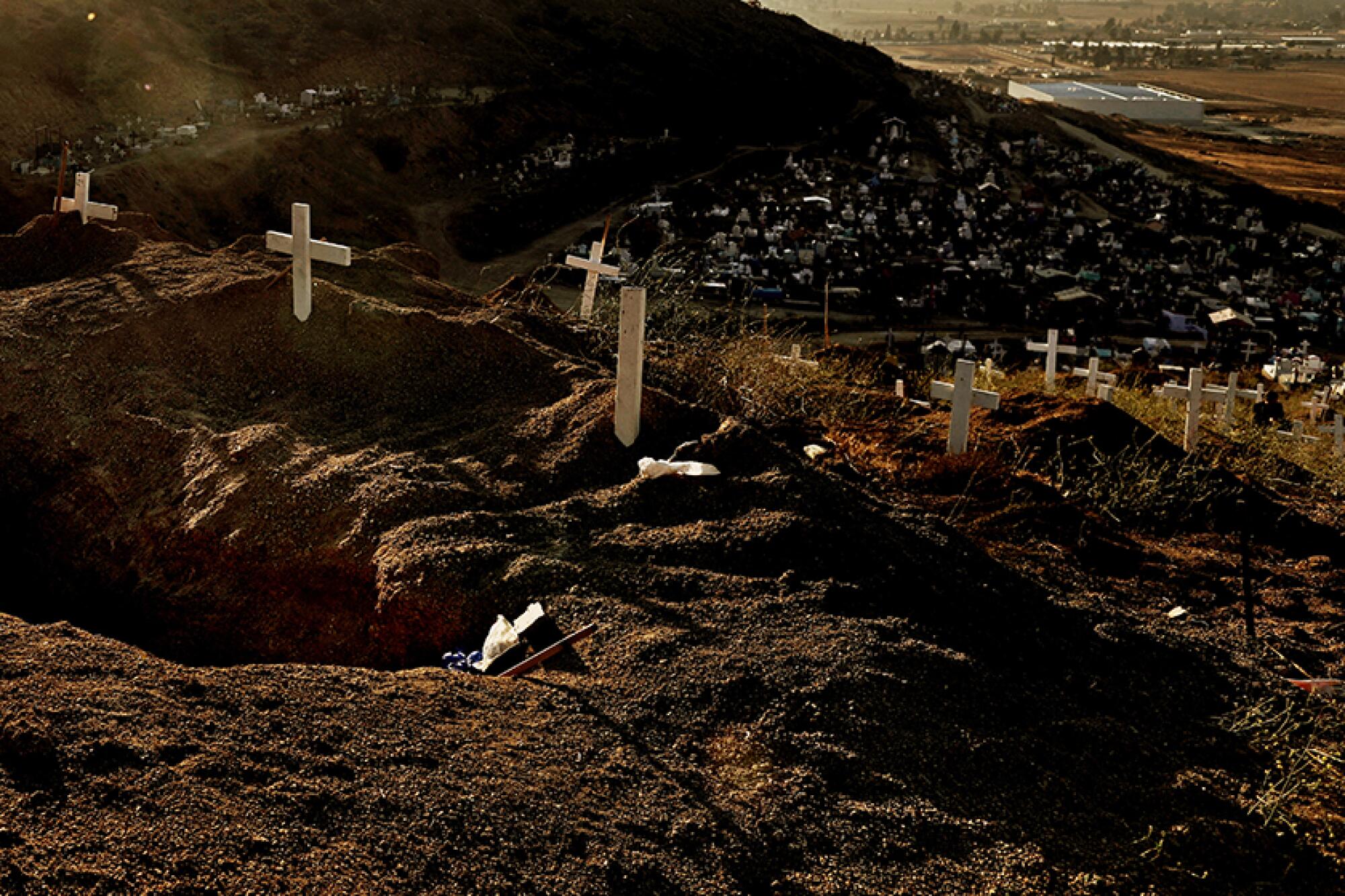
One of my first reactions to this entire episode is how deeply flawed and contradictory this drug war narrative is, and how it keeps changing. We hear one day that these traffickers are criminal masterminds. And then the next day, they’re clumsy little men desperately seeking a deal in order to survive, even if it’s a U.S. detention facility.
Your book is titled “The Cartels Don’t Exist.” Do you really mean that?
What I argue with with this title, first and foremost, is that the concept of the cartel is in itself a fiction. This is not to say that traffickers or their organizations are not real. What I challenge is the language that we use to describe them, which I believe is key to understanding the way consensus is built to legitimize the violent, militaristic policies that are pushed in societies such as Mexico. It’s language that legitimizes state violence, abuse, crimes against humanity — all kinds of horrors that a militarized country has to endure.
The U.S. decision to drop drug trafficking charges against Gen. Salvador Cienfuegos shines a light on Mexico’s increasingly powerful military.
The concept of the cartel was pushed by the DEA in the late 1970s to show the U.S. public that these organizations had evolved in power and reach, and they had become very dangerous to national security. The word itself was seldom used by traffickers. In fact traffickers were the last ones to realize that they were a part of this so-called cartel.
Most of the logistics of their survival as organizations were coordinated by either federal police or the Mexican military. Traffickers themselves were very much subordinate to Mexican state structures.
After the arrests of Ismael “El Mayo” Zambada and Joaquín Guzmán López, there was a lot of celebration in the U.S. President Biden praised it as part of a broader effort to “save American lives.” Do you think the arrests of these two men will make Americans safer?
There’s proven evidence that the kingpin strategy — this idea of detaining the heads of organizations — not only does not affect drug prices, or the influx of drugs, it many ways it makes it easier. Because it fragments the global markets and allows for drugs to flow from many different sources.
When Pablo Escobar was killed in the 1990s, the price of cocaine actually declined. It made cocaine cheaper and more available.
I’m glad of course that somebody like Zambada is detained and will face justice. But in no way will this end, for example, the trafficking of fentanyl.
What about these big displays of cartel power, like in 2019 when members of the Sinaloa cartel blocked roads and held hostages in the city of Culiacan to successfully pressure the Mexican army to release Ovidio Guzmán, a son of Joaquin “El Chapo” Guzmán?
It was a very frightening day, of course. It was extraordinary and very disquieting to see.
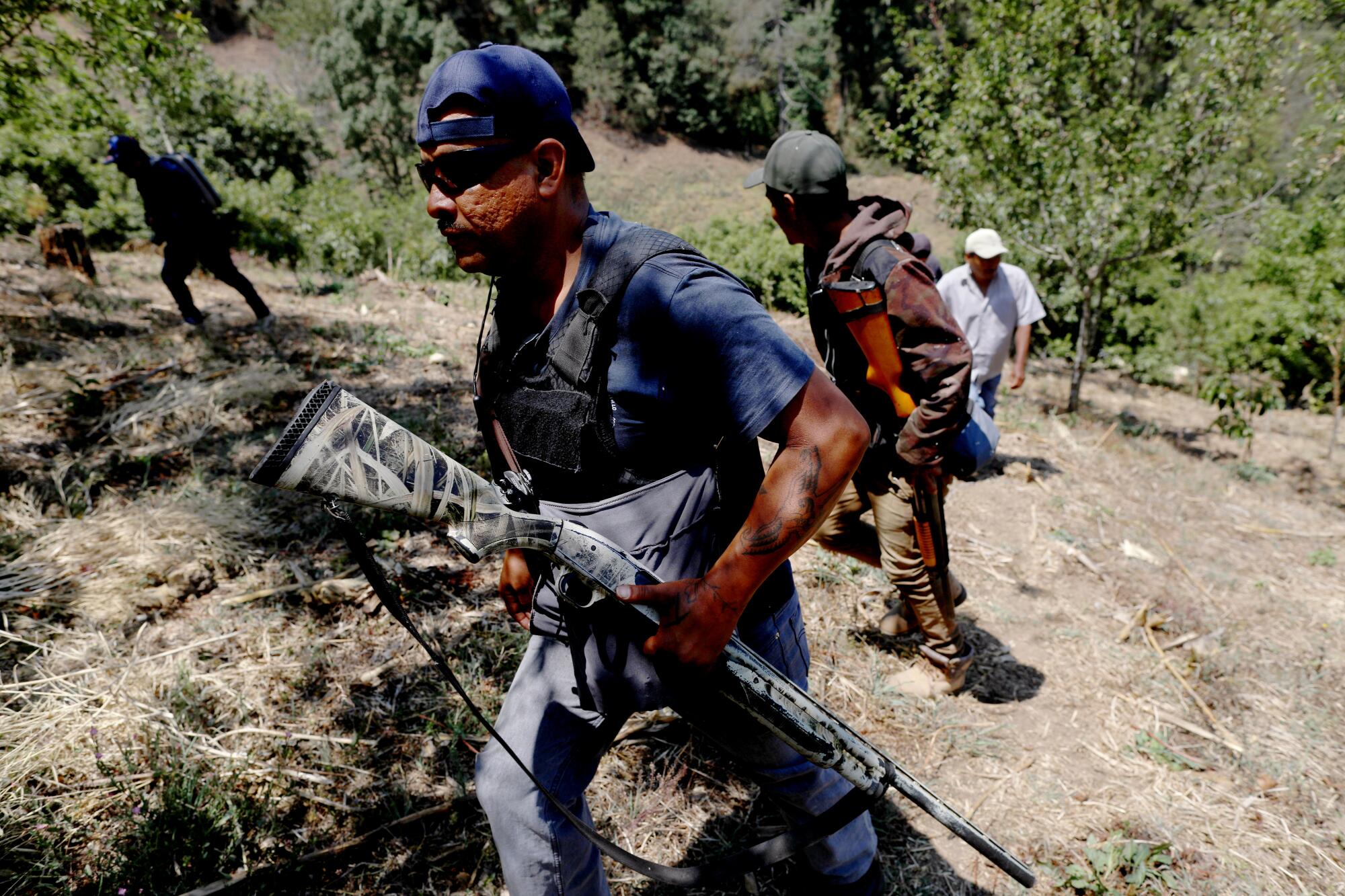
When I argue that drug cartels do not exist, it might seem like I’m denying the relevance of this moment of criminality that we are experiencing in Mexico, and by no means do I want to do that.
What I’m very concerned about is how we tend to interpret these moments of violence following the official script. In this case, what we had immediately was the official narrative installing itself: Traffickers are very powerful, they took over the city, and they forced the Mexican government to walk away. They won, and perhaps they even control the city.
That, for me, is very dangerous. Because there’s not a shred of evidence that that is true. There’s a military base in Culiacan, and according to news reports, soldiers and police officers outnumbered the traffickers almost 10 to one.
Mexico tried to modernize its justice system, but it’s as easy as ever to get away with murder.
What we saw is this narrative that I was describing, that traffickers have the upper hand. They’re winning the war on drugs and the Mexican government is in retreat. That’s not at all what happened. The Mexican government decided to leave and hand over Guzmán in order to spare innocent civilian lives. I happen to think that was the right choice. It didn’t mean that the traffickers control the city, or that in any form or fashion that they could really challenge the Mexican government. That’s just a ridiculous thing to think.
Early in his term, Mexican President Andrés Manuel López Obrador declared that the drug war in Mexico was over. He said his government would focus more on reducing homicides than on capturing cartel leaders. Has that happened?
I think that the Mexican president failed to deliver on his promise to end the war on drugs.
It may be true that at the discursive level there was a change in the way the president and the Mexican government talk about the drug trade. But the raids never ceased to exist. They are still dispatching soldiers to arrest traffickers.
The military now occupies more aspects of civil governance than ever before. The military controls the Mexico City airport, customs points of entry, the northern and the southern border. They have a very ubiquitous presence in Mexican politics. The process of militarization hasn’t stopped, but has grown.
The synthetic drug is the leading culprit in the U.S. opioid epidemic. Most comes from Mexico, where traffickers have embraced it over heroin.
We are next to the U.S., which is one of the most heavily militarized countries in the world, with the largest budget for military spending on the planet, surpassing the next 10 countries combined. And that certainly pushes the military presence and the level of military intervention in Mexico.
What do you expect from López Obrador’s successor, Claudia Sheinbaum, who will be sworn in as president on Oct. 1?
Sometimes I’m very hopeful, and sometimes I’m pessimistic. Militarization — and the violence that it entails — is very difficult to switch off. Sheinbaum has a very difficult task. Our own military is very interested in maintaining its dominant position. I mean, why would they voluntarily relinquish the power they have achieved?
More to Read
Sign up for Essential California
The most important California stories and recommendations in your inbox every morning.
You may occasionally receive promotional content from the Los Angeles Times.
